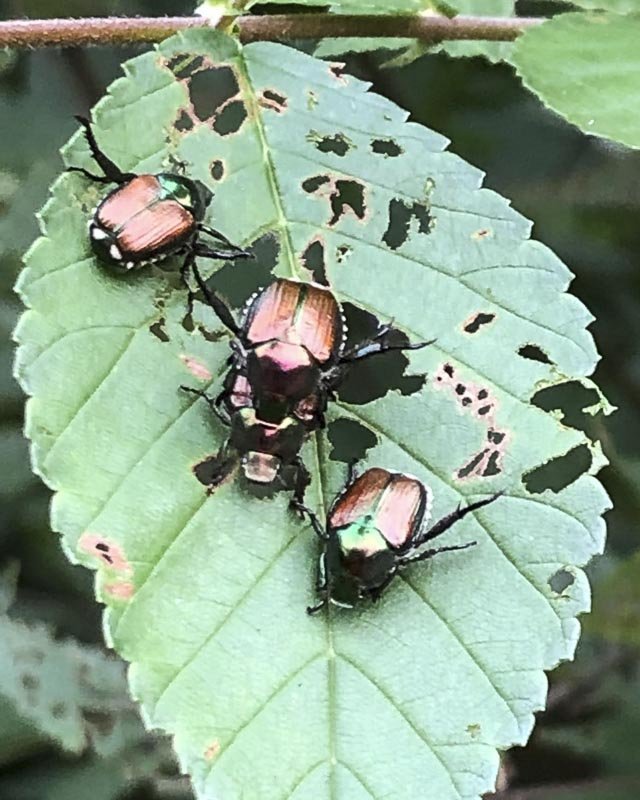Japanese Beetles
Japanese beetles eating lunch
Japanese beetles (Popillia japonica) are invasive chewing insect, native to Japan, that predate upon a number of landscape trees in Wisconsin. The adults, which have a metallic green/iridescent body and brown wing covers, are ~1/2” in size and cause a skeletonization of leaves on which they feed. Some preferred trees and plants include Crabapple, Linden, Birch, Raspberry, Grapes, and prunus trees.
When abundant in large numbers, Japanese Beetles can present a serious threat to the health of plants that they defoliate. Typically, damage will not cause outright plant mortality but over time these chronic pests can present as a primary stressor to the host. Sequential seasons of severe infestation can be fatal, or lead to secondary insect/disease opportunistic attack.
Japanese Beetle Life Cycle
Japanese beetle adults are first noticed in early July (based on temperature), when they emerge from the soil to feed and mate. Most years the adults can be found until mid-late August, or early September, before they return back to the soil to lay eggs. The eggs hatch and the c-shaped, cream-colored grubs begin feeding on plant roots. The grubs can cause additional stress on trees and plants (including turf) through their feeding activities. When soil temperatures begin to drop, in fall, the grubs migrate deeper in the soil where they overwinter. In spring, when soil temperatures begin to rise again, the grubs return to the upper several inches of soil to resume feeding on plant roots. After reaching a specific developmental threshold, the grub pupae and morph into adult beetles.
Japanese Beetle damage
Adult Japanese Beetle
Eradicating Japanese Beetles
Innovative Tree Care Specialists is well-equipped to protect your trees from Japanese Beetle attack. We offer both preventative and therapeutic treatments, as well as ways to improve tree health post-beetle defoliation. We recommend not using Japanese Beetle pheromone traps, as they will actually draw beetles to your property.
If you have noticed Japanese Beetle infestation in previous years, contact our arborist to see how we can help keep your trees protected and healthy.

